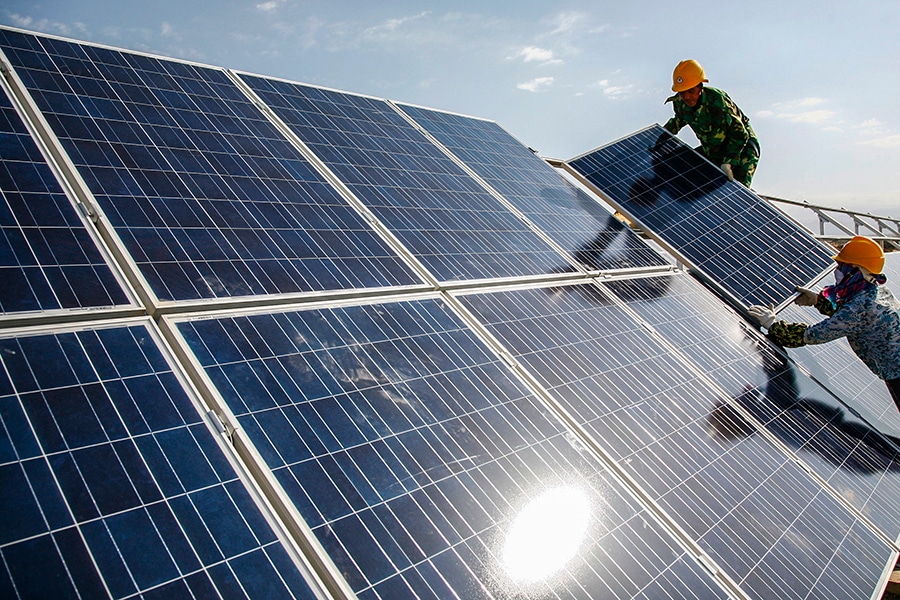
US bans imports of some Chinese solar materials tied to forced labor
A significant portion of the world's polysilicon, which is used to make solar panels, comes from Xinjiang, where the United States has accused China of committing genocide through its repression of Uyghurs and other Muslim minorities
 HAMI, CHINA - AUGUST 22: Construction workers install solar panels at Hami Solar Power Station on August 22, 2011 in Hami, Xinjiang Uyghur Autonomous Region of China. Photo by Visual China Group via Getty Images
HAMI, CHINA - AUGUST 22: Construction workers install solar panels at Hami Solar Power Station on August 22, 2011 in Hami, Xinjiang Uyghur Autonomous Region of China. Photo by Visual China Group via Getty Images
The White House announced steps on Thursday to crack down on forced labor in the supply chain for solar panels in the Chinese region of Xinjiang, including a ban on imports from a silicon producer there.
A significant portion of the world’s polysilicon, which is used to make solar panels, comes from Xinjiang, where the United States has accused China of committing genocide through its repression of Uyghurs and other Muslim minorities.
In one of the newly announced actions, U.S. Customs and Border Protection banned imports of silica-based products made by Hoshine Silicon Industry Co. as well as goods made using those products. The agency “has information reasonably indicating that Hoshine uses forced labor to produce its silica-based products,” Alejandro Mayorkas, the homeland security secretary, said at a news conference.
The action was notable given the Biden administration’s push to expand the use of solar power in the United States to help achieve its climate goals. China dominates the global supply chain for solar power, producing a significant amount of the materials and parts needed for solar panels. Cutting off access to some imports could make it harder or more costly for the United States to expand solar use domestically.
Mayorkas addressed that tension at the news conference, saying, “Our environmental goals will not be achieved on the backs of human beings in a forced-labor environment.”
©2019 New York Times News Service




